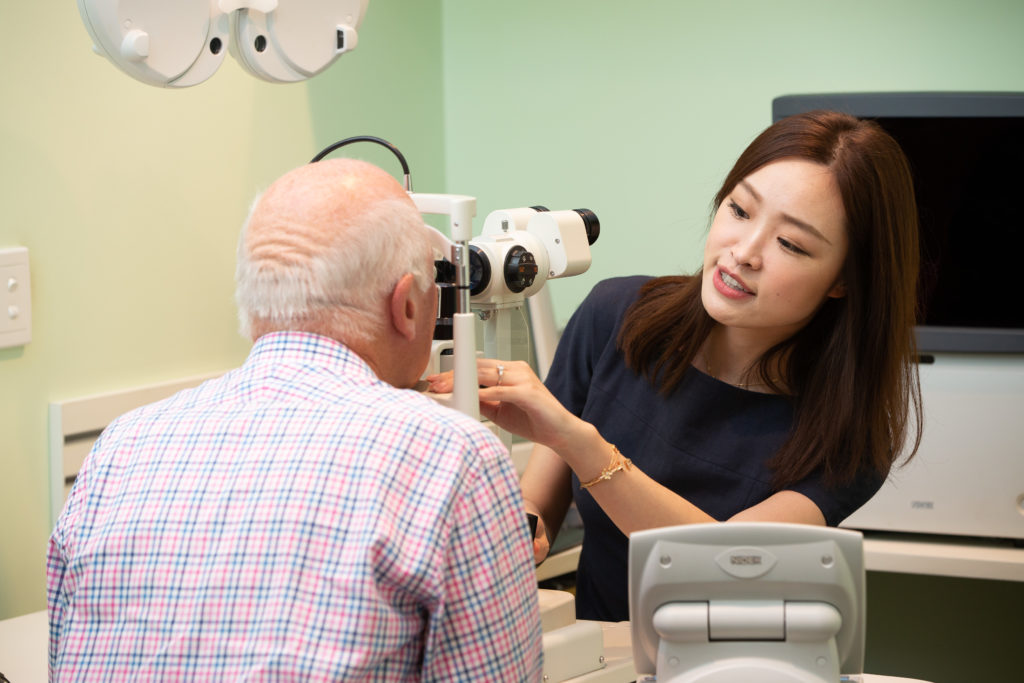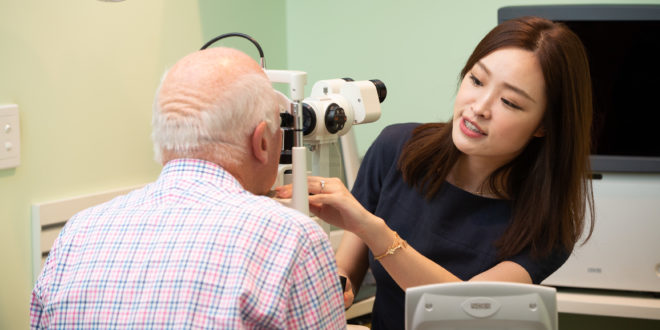This Macula Month, Shelley Wang, an optometrist at Specsavers Glenfield, is placing the spotlight on macular degeneration and calling on Kiwis to educate themselves on the disease, and potential risk factors, to protect their sight.
What is macular degeneration?
Responsible for 50% of all cases of blindness globally, macular degeneration is one of the diseases that can affect the retina at the back of the eye, which is responsible for central vision1. When macular degeneration occurs, central vision gradually becomes distorted, making tasks such as reading more difficult. Colours can become dulled and detail such as faces difficult to recognise. Over time, central vision can be lost completely.
Most commonly related to ageing, macular degeneration often doesn’t show symptoms – which is why regular eye health checks are an important aspect of detection.
The disease is thought to affect 218,987 New Zealanders and is one of the leading causes of legal blindness in the country2. However, if caught early there are steps that can be taken that may effectively manage the disease and slow the deterioration of eyesight.

What are the risk factors?
While there are multiple lifestyle risk factors, family history has been identified as one of the most important attributing factors, particularly in the development of age-related macular degeneration (AMD). In fact, individuals with a parent or sibling with AMD have a 50% likelihood of also being diagnosed with the disease3.
Macular degeneration most frequently affects people over the age of 45. It’s estimated that in New Zealand approximately 1 in 10 people in this age group have AMD. By 2020, the projected number of people experiencing vision loss or blindness from AMD is 16,2802.
Despite this, eye health is an important conversation that many New Zealanders have admitted to not having with their family. Research from Specsavers has revealed that 63 per cent of New Zealanders aren’t aware of AMD or don’t know their family history of the disease.4
What should I be doing to reduce my risk?
Shelley comments; “While there is no cure, the irreversible effects of macular degeneration can be managed and slowed if detected early by an optometrist and lifestyle risk factors are addressed.
“This is why I’d love for all New Zealanders that are in a position to do so to have the conversation with their family sooner rather than later. It’s also imperative to get your eyes tested by an optometrist at least once every two years from the age of 40, even if your eyes seem healthy.”
In a step to aid early detection, Specsavers has invested in hospital-grade 3D diagnostic technology, OCT (Optical Coherence Tomography) nationwide which is enabling its optometrists to obtain even more detailed information about the eye than ever before.
Early action saves sight. Get your macula checked today.
For more information about Macular Degeneration New Zealand or to make a donation for research, awareness and support, visit www.mdnz.org.nz.
1Macular Disease Foundation Australia, 2017, Submission to the Productivity Commission: National Disability Insurance Scheme (NDIS) Costs Position Paper
2Access Economics, 2010, Clear Focus: The Economic Impact of Vision Loss in New Zealand in 2009, A report for Vision 2020 New Zealand and Vision 2020 Australia
3Macular Disease Foundation Australia, 2018, Risk Factors: Family History, available at: www.mdfoundation.com.au/content/risk-factors-macular-degeneration
4Research New Zealand commissioned by Specsavers 2018









Join the Discussion
Type out your comment here:
You must be logged in to post a comment.